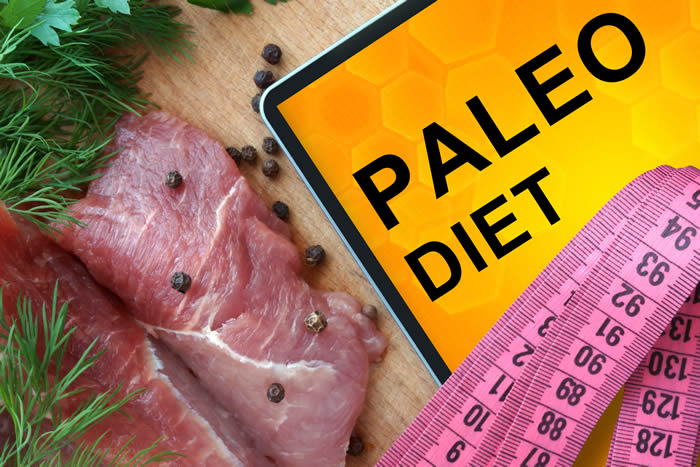6 Vital Tips Every Low-Carb Dieter Must Know

Low-carb diets have quickly become one of the most popular diets around with plenty of research supporting their benefit for health and showing they can be an effective weight loss diet. Despite the rise in popularity over the low-carb diet many people struggle to optimize them and often quit just within a few weeks simply because they are making some key mistakes.
[contentblock id=1 img=adsense.png]
I’ve conducted first-hand research on low-carb diets along with implementing it successfully with dozens of clients over nearly a decade of coaching.
Here are 6 vital strategies that you must be implementing to make your low-carb diet a success.
1. Pack the Vegetables into Every Low-Carb Meal
One of the biggest complaints of initial low-carb dieters is the constant hunger and cravings. This can occur because they’ve instantly removed all starchy carbohydrates such as rice, pasta, potatoes, and bread. Compared to fat sources (nuts, oils, cheese etc) these starchy carbohydrates actually have a lower energy density. Per serving (i.e. a plate of food) these carbs can fill the stomach and reduce hunger to a greater extent than higher fat foods. Therefore, if a low-carb dieter instantly switches out all their carbs for high fatty food such as oils, cheese, butters, cream, avocado, nuts, etc they may be MORE hungry. So, although the calories may remain the same or even be lower than before, the actual amount of food you consume could be less. Remember, 1 gram of fat contains 9 calories whereas 1 gram of carbohydrate contains only 4 calories. Here you can see that fat provides over double the amount of calories on a gram to gram basis. In addition, carbohydrates usually absorb water when cooking, filling them out even more. The above information isn’t to say a low-carb diet is bad, it’s simply emphasizing the new for low calorie vegetables, to reduce the energy density of the low-carb or keto meal. I recommend you include at least 3 or 4 portions of vegetables which will now act as a foundation or blanket of your plate, replacing what will have been starchy carbohydrates. Most vegetables are very low-carb and perfectly suited to any low-carb or ketogenic diet. All green vegetables are perfect especially leafy greens which only have around 2 or 3 grams of carbs for a whole plate size serving.
2. Rotate Your Fats When Going Low-Carb
Many people will switch to a low-carb diet and instantly consume a high amount of dairy and saturated fat (cheese etc) because this is a very novel and tasty combination (bacon, cheese-burgers anyone?) While dairy is certainly a good choice and the fats in dairy aren’t necessarily a health issue like we are led to believe, you still need to get a good mix of all fats. Remember, other fat sources such as Omega-3’s, MCT’s, monounsaturated or polyunsaturated fats are all extremely benefica for health. Therefore, I recommend you rotate and mix your fats so you’re getting a nice even mixture of all types of healthy fats. In the Metabolic Advantage Diet I recommend people rotate and mix their fats so they are getting an even mixture of all types of healthy fats.
Read More: 8 Amazing Health Benefits of Protein
Here’s a suggested ratio:
- Monounsaturated Fats: 35%
- Polyunsaturated Fats: 35%
- Saturated Fats: 30%
- Trans or Hydrated Fats: 0%
Another common mistake that people make is always reaching for the high fat meats such as bacon, sausage, or fatty beef which they’ve had to avoid for many years. While again this isn’t necessarily a problem for low-carb diets, these foods should just play PART of the diet and not instantly become the main food source. As mentioned above, it’s wise to get a mix of leaner meats, fish and some fattier meats, especially when dieting. Including sources such as chicken, turkey, leaner cuts of meat, sausage, and fish can help fill your plate and reduce hunger. Of course, you can still add more fat to these leaner sources if needed.
3. Take Specific Low-Carb Supplements
In addition to the basic supplements that I recommend for fat loss, there are some specific supplements that can provide tremendous benefits for low-carb dieters. These specific supplements can help overcome certain deficiencies or reduce the risk of deficiencies which you may obtain by cutting out a whole food group (i.e. carbs).
Here’s a few I include in the Metabolic Advantage Diet:
- Sodium: I recommend extra sodium or salt during a low-carb diet to help balance water and electolyte levels. People who struggle with energy / fatigue when moving to a low-carb diets can partly be explained by a decrease in sodium and electrolyte content. This is caused by the large drop in glycogen and water content when removing carbs.
- Glutamine: The amino acid glutamine is often used by bodybuilders and fitness enthusiast. It functions to support gut health and may also have some links to your immune system. For low-carb dieters an additional benefit is that it helps with glucose metabolism and production. Therefore adding glutamine may help you produce slightly more glucose (fuel) during high-intensity exercise.
[contentblock id=2 img=adsense.png]
- Caffeine: I often recommend caffeine to people who are dieting. It has numerous benefits for performance, fat loss, and even health, backed by over 100 studies. For low-carb dieters the use of caffeine can be even more important to boost energy and enhance performance when adapting to the new fuel source and energy system (fat).
- MCT Powder/Oil: MCT powder or oil is one of the most common supplements used by low carb or ketogenic diet. MCT oil is a specific type of fat known as Medium Chain Triglycerides and can be obtained from foods such as coconut. The benefits of MCT fats are very unique and it provides a quick burst of energy much like carbohydrates or glucose would have. This can be important for a low-carb dieter who is still trying to maintain a good amount of performance in their gym or training sessions.
- Ketones: Ketones are a byproduct produced when you reduce carbs enough and switch over into Ketosis. I’ve researched ketones first hand and they’re are a fascinating fuel source which may provide numerous health and disease benefits. These days’ ketones are even being used in research to treat conditions such as cancer, brain disease and much more.
- Fiber: I often recommend a fiber powder during low carb diets to hit your daily RDA of fiber. The benefits of fiber are extremely effective in helping with fat loss, hunger, and several serious diseases. Adding in 5-10 grams of fiber once or twice a day is a very simple but effective way to just boost your daily fiber intake.
- Magnesium: Magnesium is another key mineral that I recommend for general use and low-carb dieters. Around 2/3 or more of the population don’t get sufficient magnesium as it is, these numbers are then amplified further if you perform regular exercise (which i’m guessing you are). For a low-carb dieter, magnesium will is a key mineral and can aid those who struggle with sleep caused by the reduction in carbohydrates at night.
- Melatonin: Linked to my comment on sleep above, I have to recommend melatonin as a short term sleep aid when adjusting to a low carb diet. I’ve discussed the importance of sleep in other articles and it may be even more important when doing a low-carb diet. You should always discuss with your medical professional before taking melatonin as it alters brain chemistry but once cleared I recommend around 3-6 mg about 30-60 minutes before bed.
Read More: Healthy Taco Tuesday Inspiration From a Paleo Expert
4. Ditch The Fat Bombs and Jugs of Cream
When dieting you always want to reduce hunger levels and stay satiated for as long as possible. Even though you might not be hungry at first, after a few weeks on any well designed fat loss plan, hunger is going to come for you and, hit you right in the face. One of the big fads I tend to see on low carb diets is the creation fat bombs or adding butter or cream to your coffee or drinks. The butter or fat bomb based coffee has become a worldwide phenomenon off what myself and other experts class as another stupid fad. There are no marvelous benefits from a high calorie coffee and you could easily obtain a better and more well-balanced range of fats and nutrients from a normal low-carb whole meal. Apart from the ridiculousness of consuming 500 or 600 calories in one beverage, or, consuming over 40 or 50 grams of saturated fat in a drink, there are really no scientific benefits supporting these stupid, calorie dense beverages. If you haven’t got time for breakfast, then simply skip it or prepare a on the go and healthy snack. Remember, there are a ton of benefits from intermittent fasting and I use this very successfully with 100s of clients to shred fat as part of the Metabolic Advantage Diet. If you struggle with energy in the morning you could simply consume a caffeine based beverage such as coffee or maybe even 5-10 grams of ketones or MCT oil. Rather than consuming these stupid fat bombs, try to consume a more nutrient dense REAL FOOD which provide plenty of other nutrients such as high quality proteins, fiber, vitamins and minerals!
5. Read The Label and Focus on Whole Foods
Another big mistake with low-carb diets is making some basic errors in calculations and guesstimates. Apart from adding unwanted calories and sugar this can quickly make a low carb diet actually a medium carb diet, which when combined with a high amount of fat, may not be so good. To counter this you must become extremely familiar with the products that make up your staple diet. To do this, make sure you read every food label and skip processed foods where the sugar and carbs content may be higher than expected. Even an experienced low-carb or ketogenic diet will see the amount of carbs quickly add up from simple things like sauces, fruits and vegetables. Always double check the food and label, monitoring your daily carb intake closely, especially if you are going onto a ketogenic diet.
[contentblock id=3 img=gcb.png]
6. Start With It, Stick With It
High carb, low carb or any other diet principle, the most important factors is consistency and enjoyment. If you’re going to start with a low carb diet, make sure you stick with it for several weeks and give it a chance to work. Remember, a low-carb or ketogenic diet can be one of the most effective ways to shred bodyfat and improve metabolic health. If you want to get a full optimized low-carb ketogenic diet plan proven to burn 300-400% more fat than a regular diet, you can join my Metabolic Advantage Diet now and save over $200 on the initial price with coupon:



